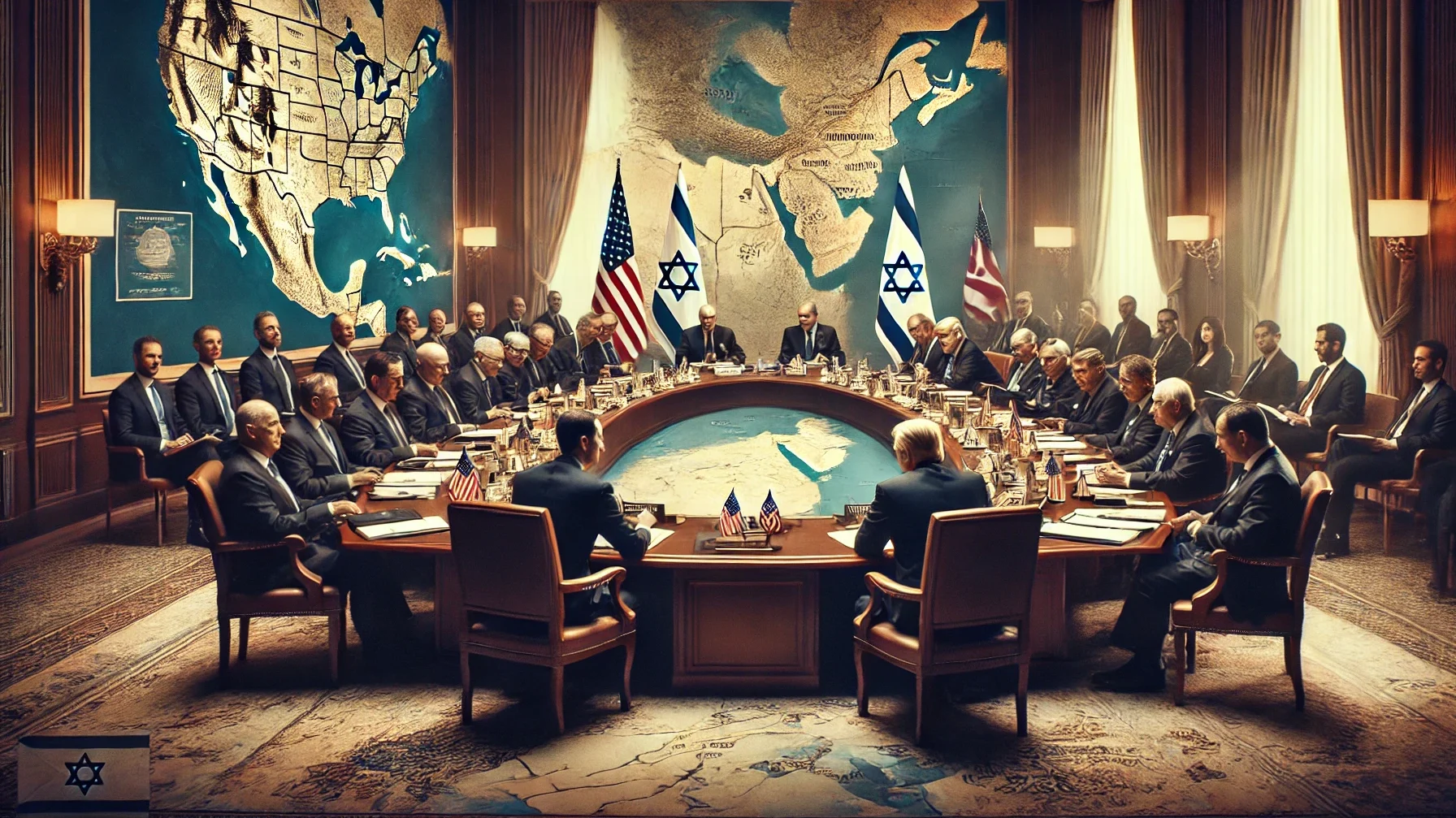Trump Understands What Israel Refuses To Admit
Maariv, Israel, February 12
The concept of relocating the population from Gaza wasn’t conceived by Donald Trump or Bezalel Smotrich; its origins lie within the Zionist Labor Movement as far back as 1937. Berl Katznelson, a prominent leader of the movement, commented on the Arabs of Israel, suggesting: “A remote neighbor is better than a close enemy. They will not lose from being transferred and we shall certainly not lose from it. … I have long been of the opinion that this is the best of all solutions. … I always believed that they were destined to be transferred outside the land of Israel.” Ultimately, this idea was never implemented, nor did it become an official Israeli policy.
Whether Donald Trump has ever heard of Berl Katznelson or Rehavam Ze’evi, who later embraced this idea, remains uncertain. However, Trump was possibly aware of the myriad studies suggesting that the rehabilitation of the Gaza Strip, as well as its viability as a sustainable geographic or demographic unit, is bleak unless its population is significantly reduced. His intentions likely extended beyond economic reconstruction, aiming to leverage the situation as a catalyst for a comprehensive political resolution.
Trump’s approach epitomizes the American mindset: every problem has a solution, and success lies in finding the right one with diligent effort. While it’s premature to speculate on the likelihood of Trump’s initiatives coming to fruition, an important political consequence has already emerged: the range of potential solutions to the Palestinian issue has been expanded.
This holiday season, give to:
Truth and understanding
The Media Line's intrepid correspondents are in Israel, Gaza, Lebanon, Syria and Pakistan providing first-person reporting.
They all said they cover it.
We see it.
We report with just one agenda: the truth.


Beyond the two-state solution, which appeared increasingly improbable, especially post-October 7, the focus now includes a broader regional approach that could address Palestinian aspirations, albeit partially. This comprehensive arrangement might appease Saudi Arabia and other Arab states, for whom the Palestinian question remains a significant political concern. By orchestrating normalization between Saudi Arabia and Israel, aligned with the Abraham Accords under an American security umbrella, Trump and his advisors foresee not only strategic and economic gains for the US but also substantial investments in its economy.
The contents of the private talks between the president and Prime Minister Netanyahu remain undisclosed, yet the tone and expressions observed during their public interactions suggest one of the most positive exchanges between American and Israeli leaders in recent memory. Biden, Trump’s predecessor, possibly represented the last staunchly Zionist presidency, and his unwavering support for Israel during a challenging time merits admiration, especially given that he faced intra-party opposition. Yet, Trump stands firm on ensuring that the Zionist vision endures, subscribing to a distinctly “Kissingerian” realpolitik.
For Trump, the strategic alliance with Israel must manifest in tangible actions, unlike the sometimes token gestures of the past. Discussions during the meeting likely addressed critical issues, like the American pressure on Hamas to aid Israel in securing the release of hostages as an initial step toward a broader agreement. Notably, Trump’s reluctance to endorse renewed Jewish settlement in Gaza may not align with the Israeli Right. However, both leaders firmly oppose Hamas’s control over Gaza, although consensus on whether military action by Israel is necessary remains elusive.
A subject that appears to have been sidelined publicly, despite its paramount importance, is Iran and its nuclear threat. Trump aims for a more all-encompassing nuclear accord with Iran than the flawed deal brokered by Obama, openly acknowledging this ambition. Still, he dismisses media claims of a US-Israel “crush Iran” strategy as grossly overstated. Concurrently, Trump revealed plans for additional economic sanctions on Tehran to facilitate a “verifiable nuclear agreement.”
Israel remains unwilling to dismiss a potential military confrontation with Iran altogether, given vastly improved geopolitical conditions. Beyond the nuclear menace, there exists a persistent range of military and terrorist threats rooted in Iranian ideology and strategy aimed at dismantling the Jewish state. Addressing these challenges will be central to the bolstered strategic partnership between the United States and Israel during the Trump era.
Zalman Shoval (translated by Asaf Zilberfarb)

